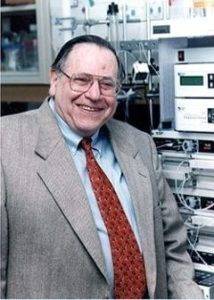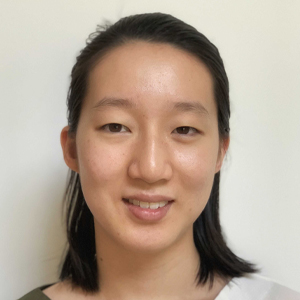In memoriam: Ludwig Brand
Ludwig “Lenny” Brand, a longtime professor of biology at the Johns Hopkins University Krieger School and a member of the American Society for Biochemistry and Molecular Biology for more than 50 years, died Jan. 5, two days after his 90th birthday.

Born Jan. 3, 1932 in Vienna, Austria, Brand moved to the United States early in his life and graduated from high school in Boston. He earned a bachelor’s degree in chemistry from Harvard College in 1955, followed by a Ph.D. in chemistry from Indiana University five years later. After a short stint as a research associate at the Weizmann Institute of Science in Israel, he joined the faculty at Johns Hopkins, where he developed a reputation for his enthusiastic teaching and generous personality. He remained at Hopkins until his retirement in 2012.
Brand was interested in dynamic structures of cellular components including proteins, membranes and nucleic acids. His lab used fluorescence spectroscopy and specifically single photocounting methods to study protein fluctuations on the pico- to nanosecond time scale, providing a more accurate portrayal of these molecular machines. He was one of the pioneers in the time resolved emission spectra technique, which he employed to study GB1, a plant protein found outside the cellular membrane.
Brand was a beloved mentor and supervisor. “He cared deeply about people who worked with him, encouraged us to do what was most interesting, and never micromanaged our work,” said Dmitri Toptygin, an associate research scientist, in a Hopkins obituary.
In addition to the ASBMB, Brand was a member of the American Chemical Society and a fellow of the Biophysical Society, which honored him with the Jablonski Award in 1998 and the Gregorio Weber Award in 2015. He served for five years as the executive editor of the journal Analytic Biochemistry and on the editorial boards of several other journals.
Outside of academics, Brand enjoyed listening to blue grass music and playing the banjo, according to a family obituary. He is survived by his wife, Sheila S. Gallay.
Enjoy reading ASBMB Today?
Become a member to receive the print edition four times a year and the digital edition monthly.
Learn moreGet the latest from ASBMB Today
Enter your email address, and we’ll send you a weekly email with recent articles, interviews and more.
Latest in People
People highlights or most popular articles

2026 ASBMB election results
Meet the new Council members and Nominating Committee member.

Simcox wins SACNAS mentorship award
She was recognized for her sustained excellence in mentorship and was honored at SACNAS’ 2025 National Conference.

From humble beginnings to unlocking lysosomal secrets
Monther Abu–Remaileh will receive the ASBMB’s 2026 Walter A. Shaw Young Investigator Award in Lipid Research at the ASBMB Annual Meeting, March 7-10 in Washington, D.C.

Chemistry meets biology to thwart parasites
Margaret Phillips will receive the Alice and C. C. Wang Award in Molecular Parasitology at the ASBMB Annual Meeting, March 7-10 in Washington, D.C.

ASBMB announces 2026 JBC/Tabor awardees
The seven awardees are first authors of outstanding papers published in 2025 in the Journal of Biological Chemistry.

Decoding how bacteria flip host’s molecular switches
Kim Orth will receive the Earl and Thressa Stadtman Distinguished Scientists Award at the ASBMB Annual Meeting, March 7–10, just outside of Washington, D.C.

